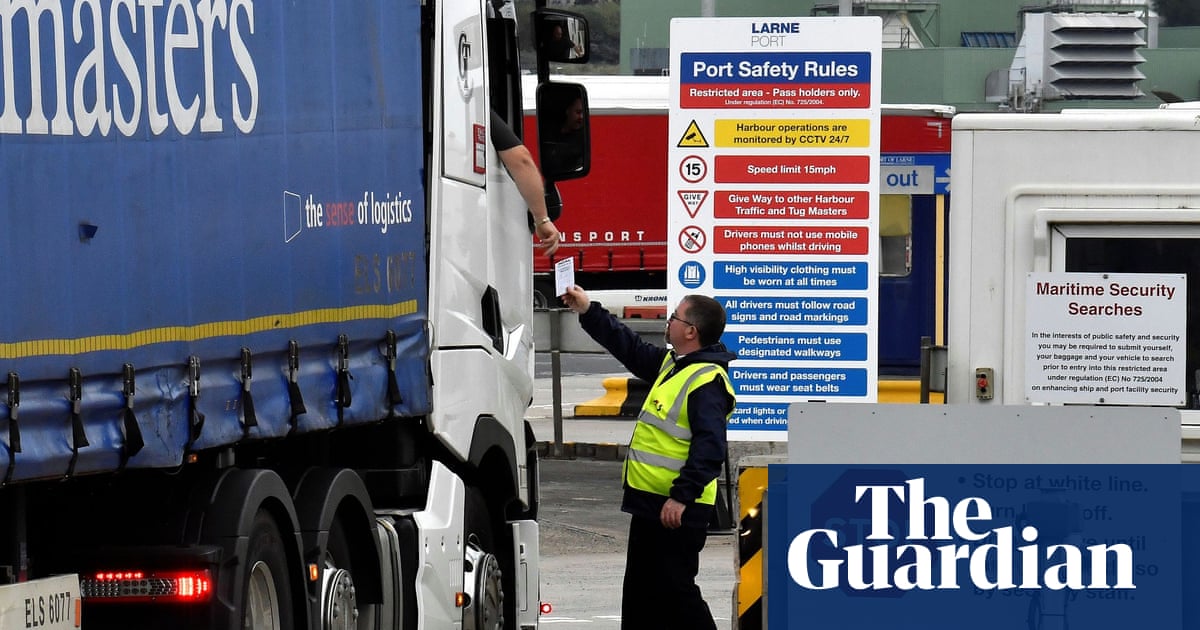The UK’s trade deal with the European Union is expected to smooth trade between Great Britain andNorthern Ireland, but for some businesses in the latter it no longer matters, as they have ditched British suppliers.
“Overall the deal is welcome but we’re indifferent,” said Peter Bradley, a director of the Mid-Ulster Garden Centre. “We give our business now to Dutch, Italian and Republic of Ireland companies. We’ve got into a nice pattern and rhythm, post-Brexit, and British suppliers have almost become unnecessary.”
The comment underlined that some changes to Northern Ireland’s economy will endure despite Keir Starmer’s announcement on Monday of a “win-win”reset deal with Brussels.
The promise to soften the post-Brexit Irish Sea border by reducing checks on agrifood products going from Great Britain to Northern Ireland met with a broad welcome from business owners, farmers and politiciansin the region and the Republic of Ireland.
However, for companies such as theMid-Ulster Garden Centrethat have successfully adapted their supply chains, the deal may not matter. The Maghera-based family-owned business previously sourced 10% of plants and trees from Great Britain, but that fell to zero after Brexit, which left Northern Ireland in the EU market for goods and complicated trade with Great Britain.
“It’ll make very little difference because we’re already very comfortable with whom we source from – the Dutch, the Italians, the Republic [of Ireland] as well as Northern Ireland suppliers,” Bradley said. Brexit had done “irreparable damage”, he said. “We’ve moved on. We’ve got alternatives, and we’re content and doing well.”
The deal, hailed as a “new chapter” in relations between London and Brussels, encompasses fishing, youth visas and travel rules, and removes agrifood trade restrictions, which Starmer said would give a £9bn boost to the UK economy.
Business and political leaders in Northern Ireland welcomed the lifting of the need for health and veterinary certification, known as sanitary and phtyosanitary checks (SPS), on farm products ranging from fresh meat and dairy produce to vegetables, timber, wool and leather.
William Irvine, the Ulster Farmers’ Union president, called it a significant breakthrough that would give certainty to the agrifood sector. “An end to burdensome SPS paperwork, removal of checks on goods moving to Northern Ireland, inclusion of secondhand machinery, progress on the movement of live cattle, pesticide regulations and rules on organics – these are all key wins,” he said.
While British and EU negotiators spend the coming months working on details, theWindsor framework, which tweaked the Brexit arrangements that created the Irish Sea trade border, will continue to apply in Northern Ireland to areas not covered by the deal.
Suzanne Wylie, the head of the Northern Ireland Chamber of Commerce and Industry, said the deal would not solve every problem but was a step in the right direction. “Local businesses will take time to analyse the detail as and when it emerges.”
The Irish government and most of Northern Ireland’s political parties welcomed the deal but the Democratic Unionist party said it was too early for a definitive judgment and that it would form a view through the “prism” of Northern Ireland’s place in the UK.
